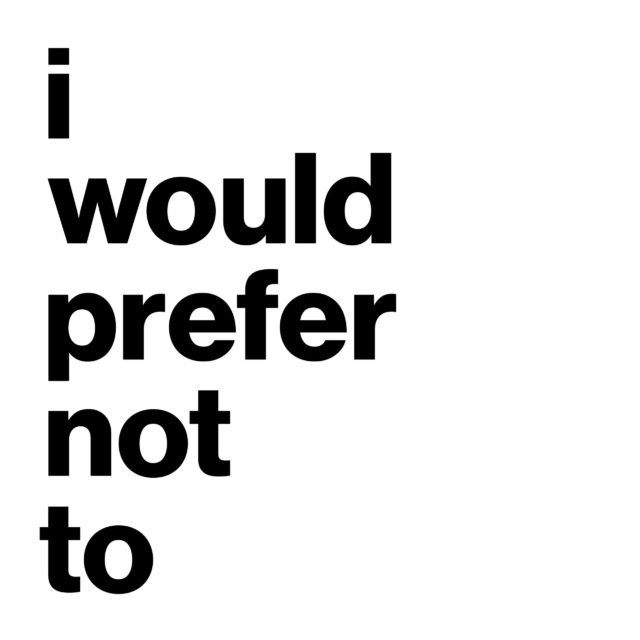Why do architects turn down commissions? An interview series conceived and produced by MIT’s Critical Broadcasting Lab, and presented in collaboration with The Architectural League, sheds light on an unexamined part of architectural practice.
I Would Prefer Not To is an oral history project conducted through audio interviews on the topic of the most important kind of refusal in architects’ toolboxes: refusal of the architectural commission. Decisions to refuse a commission, or withdraw from one, by definition, stay hidden from public scrutiny, and thus also hidden from architectural history. Withdrawals of this kind do not leave paper trails. If at all, they exist as specters of professional gossip, not easy to examine or learn from. And yet, the lessons contained in architects’ deliberations about, and decisions not to engage, are politically relevant and urgent. Decisions not to engage a commission or types of commissions, or commissions with certain characteristics, inevitably forfeit potential profit, placing other values above it, at least momentarily.
Every piece of architecture has a complex story to tell about the agents, constituents, strategic and fortuitous alignments that made it possible, as well as hopes, fears, and stories that architects had told themselves and others in the process of working. I Would Prefer Not To interviews with architects (on the projects they declined to take on) aim to shed light on some of that complexity, insisting on the architects’ ethical deliberations. At what point is a commission not worth it? What kind of line gets drawn with a decision to forfeit the possibility of work? When in one’s career is it possible, or necessary, to make such a decision?
The I Would Prefer Not To project was conceived and produced by Ana Miljački, director of the Critical Broadcasting Lab, co-produced by Julian Geltman, and is presented in collaboration with The Architectural League.
Click Here to hear I Would Prefer Not To on the Architecture League’s Website.
